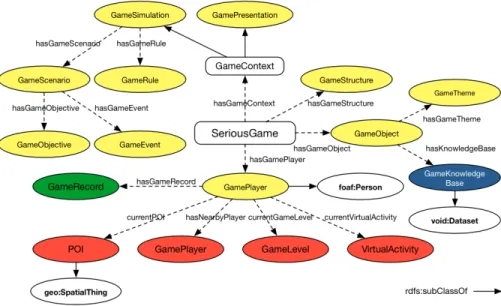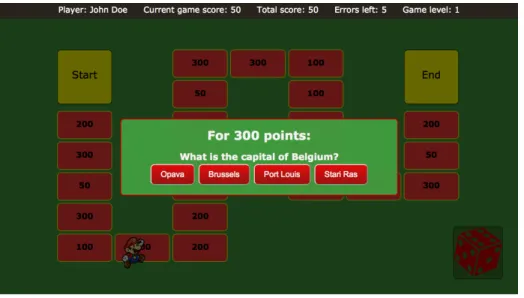Ludo: An Ontology to Create Linked Data Driven Serious Games
Texte intégral
Figure


Documents relatifs
According to a multi-level description of game design process, bio-inspired computational algorithms can be visible to the user, residing at an external, shell
Tackling the limitations of existing approaches, we model a lightweight ontology for orchestrating linked data processing workflows, dubbed the Linked Data Workflow Project
However, instead of representing every AKP occurring in the data set, ABSTAT summaries include only a base of minimal type patterns, i.e., a subset of the patterns such that every
Finally, we used datadumps provided by MusicBrainz 8 [8] and identifiers from Wikidata [9] available in the datadumps and in DBpedia, to obtain number of users owning an album and
However, for the LOD on- tology matching task, this approach is unpromising, because different scopes of the authors of LOD data sets lead to large differences in the
The proposed approach is based on the creation of a novel knowledge discovery method relying on the combination, through an iterative ‘feedback- loop’, of (a) data
[r]
The Privacy Preference Ontology (PPO) illustrated in fig- ure 1 provides: (1) a main class called PrivacyPreference that defines a privacy preference; (2) some properties to de- fine